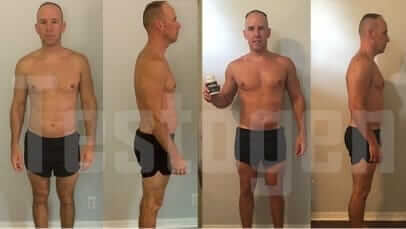The food market is saturated with “healthy” foods. The demand for healthier alternatives is incredibly high and the food/supplement companies are quite aware of this. So they are using clever and sneaky marketing tactics to attract the uneducated consumer. It’s no surprise that people are finding it difficult to know the difference between what’s actually healthy for them and what’s not. Here are three “healthy” foods that could be preventing you from achieving your goals.
Seeds and Nuts
While packed with nutrition, these little snacks can pack a huge caloric punch. For example, one cup of almonds contains over 800 calories. The problem with seeds and nuts is that they are so easy to over-consume. A 2 oz. serving of nuts isn’t that high in calories but how easy is it to eat a few handfuls? Before you know it, you’ve just munched through the equivalent of 8-10 oz. and a scary amount of calories.
Many people choose to snack on seeds and nuts because they are “healthy.” But be warned; an excess in calories is an excess in calories. It doesn’t matter if the calories are “healthy” or not; if you’re eating in a caloric surplus, you will more than likely gain weight.
Nuts are also occasionally accredited with containing protein. While it is true that nuts do have protein, it’s important to note that nuts are an incomplete protein source, meaning that they do not contain all of the essential amino acids. Nuts should not be relied upon as a significant protein source.
So while nuts are delicious and packed with nutrients, they should be consumed wisely with total overall caloric and macronutrient intake in mind.
Wine
Yes, wine does have some beneficial nutrients, none more so proclaimed than resveratrol. However, the amount of wine one would have to consume to get a beneficial dose of resveratrol would be totally negated by the amount of alcohol in the wine.
Some people respond better to alcohol than others and are able to get away with a higher consumption without seeing any changes to their body. Others are not so lucky. A glass of wine every night can be just fine for some, while for others, it could severely restrict their fat-loss efforts.
It should come as no surprise that alcohol consumption has the potential to stall your fat loss and prevent muscle gain. Alcohol significantly decreases protein synthesis and greatly affects your recovery ability. If you want to get the most out of your time in the gym, you would be wise to consume alcohol responsibly.
Fruit
Yes, fruit can inhibit your fat loss efforts. Fruits are packed with a great amount of nutrients but you must also be aware of the sugars they contain. Fruits are actually a little different than other carbohydrates. Fruits contain fructose (as well as sucrose), which act slightly differently in the body. Fructose is more likely to be used/stored by the liver than by muscle tissue. If your liver glycogen and energy demands are met, than that fructose could potentially be stored as fat, even if your muscle glycogen is low.
Fruits such as apples, bananas, oranges, and grapes contain the highest amounts of sugar among fruits. In order to avoid excess sugar, you should consume fruits such as blueberries, blackberries, strawberries, and raspberries more frequently than the higher sugar containing fruits.
This article is in no way, shape, or form telling you that these foods are bad for you and should be avoided. That’s not the intention. The intention is to get you to be more aware of what you are putting in your body. The “healthy” food marketplace is a very dangerous place, filled with false advertisements and misleading claims. So be sure to do your due-diligence and not blindly trust what you see in advertisements.






